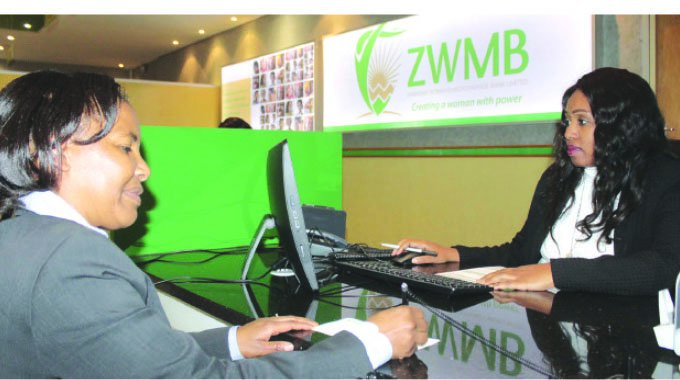When Divine Ndhlukula first launched her security business in 1998, she found it difficult to get funding and a struggle to gain access to the markets that would allow her enterprise to thrive.
“I was a woman entering the male-dominated security sector with no experience or expertise,” she says. “So already, being taken seriously was a challenge. No one believes you can do it, and no one is willing to listen to you.”
Twenty years later, Ndhlukula, 57, has proved her critics wrong. Harare-based SECURICO has grown into one of the biggest security companies in Zimbabwe. But Ndhlukula says things haven’t changed much for women entrepreneurs in the two decades since she started her company. “The problems still exist. Role models such as myself are trying to change mind-sets, but the prejudice still exists,” she says.
One problem is that few women in Zimbabwe own assets that can be used as collateral to secure a bank loan. “Banks want to have some form of security, and women do not have security. If you are in a marriage, the property belongs to your husband, even if you contributed to it,” Ndhlukula says. “Secondly, as much as one might provide quality and excellent services, accessing the markets is still a problem for women. Most of the supply chain deals are done by men, and they make [deals] in the pub, they make them on the golf course."
That’s the situation the government hopes to change with its first women’s bank, which opened its doors for business on June 12, 2018. First proposed under the Mugabe government, the bank now sits within the newly created Ministry of Women and Youth Affairs under Zimbabwe’s new president Emmerson Mnangagwa, who will formally launch the bank at the end of the month.
Through an initial government-sponsored cash injection of $10 million, the Zimbabwe Women’s Microfinance Bank (ZWMB) will provide financial support to women who need money to run small or medium enterprises. In addition to funding projects, the bank will also offer business training.
ZWMB chairman Mathews Kunaka says the bank’s overall goal is to help female business owners, particularly in rural areas, overcome the lack of collateral, information and skills that holds back many potential female entrepreneurs.
The Reserve Bank of Zimbabwe’s National Financial Inclusion Strategy, published in 2016, estimates that 57 percent of the country’s business owners are women. However, another report from USAID has found that the majority of these women run informal microbusinesses connected to agriculture, and are largely excluded from formal financial services.
“The bank will try to address these challenges by offering funding combined with training in financial literacy and business management skills to the women in conjunction with other partners,” he says.
One of the biggest obstacles the bank will remove is the insistence from traditional lenders that women provide assets as collateral for loans. In a country where 63 percent of women don’t own a house and 64 percent don’t own any land, most women have nothing to use as a guarantee on the money they want to borrow.
Kunaka says there are ways around this lack of security, including group lending between women. “Where there is no physical security we will make use of such methods.”
This method has been successfully used by other women’s banks, like the Tanzania Women’s Bank (TWB), which was established in 2007.
Japhet Justine, TWB’s managing director, says “big banks prefer title deeds and mortgages, but we understood that Tanzanian and Sub-Saharan African women are financially excluded, so we designed a product for them by creating a group of five women who run small businesses and putting them together. We used the social bond as collateral.”
Justine says the bank also differentiates itself from traditional lenders by focusing on sustainability and developmental impacts instead of profitability.
The bank initially focused on lending to grow its client base, “which was not healthy,” he says. “We had to spend more time with our clients and support them to streamline their businesses and stay focused so that they can repay the loan and also be able to invest more and create a proper cash flow.”
He says the strategy has resulted in the steady growth of the bank and its clients’ businesses.
“Some of our clients started with small businesses, but today they have established businesses. And some have graduated from being financially excluded to now being able to borrow as SMEs with the big banks.”
Back in Zimbabwe, 37-year-old farmer Muchanetsa Jeza, who visited the ZWMB on its opening day, is hoping the new bank will be able to provide her with funding to enjoy the same kind of success.
“I have a small farm and would like a loan to buy seeds, fertilizer and equipment. Right now I am limited because I do not have enough money to buy the things I need. So I am hoping the bank will be able to help me with a loan to grow my business,” she says.
SECURICO founder Ndhlukula is encouraged that the new bank will boost women’s economic participation. But she says it will take more than money for women in Zimbabwe to fulfill their potential as business owners.
“At times you can take the horse to the water, but you cannot make it drink,” she says. “What is key is for us as women to have self-belief and build that “can do” attitude. Once that is there, we will be able to make use of the opportunities given to us.” – World Crunch




